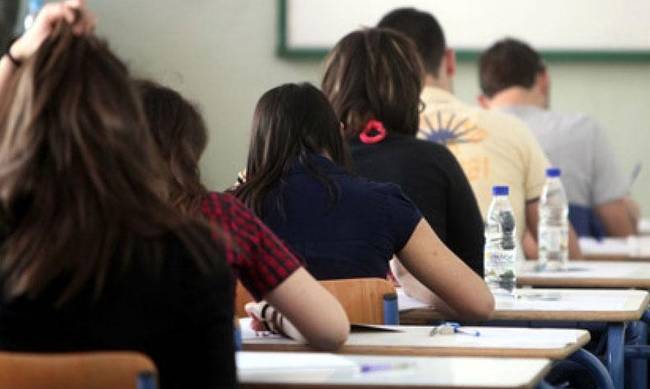School bullying rose to 25%, with one in 4 students being a victim of bullying, a fact that particularly worries the Ministry of Education which, with its multi-level actions and preventive programs, is trying to put an end to the increasing course of the phenomenon, told KYPE, the Head of the Educational Psychology Service at the Ministry Dr. Ernesta Papakosta.
The findings of a recent survey carried out by the professor of the Department of Psychology at the University of Cyprus, Dr Costas Fantis, on behalf of the Ministry of Education, shows that the percentage of children who are victims of school bullying in Cyprus is 20-25%, which, as mentioned, in line with European research.
"The phenomenon of school bullying has concerned us for many years. It is a phenomenon for which we are following the investigations worldwide as well as the investigations carried out in Cyprus. The new research came to add to the existing knowledge of the Service and helps us to act based on research data", said Dr. Papakosta.
There is some evidence in the research, he continued, that boys bully more than girls, there is an increasing trend in girls as well, but findings that are already known to us from previous research.
As he said, during the first epidemiological survey carried out in Cyprus in 2010, the percentage of school bullying was around 17%. From 2010 until today, he noted, there is definitely a rapid increase, as there is also abroad, it is not only a phenomenon of Cyprus.
Asked about the causes, she said that there were "social, school and individual reasons which created this increase".
The research, he emphasized, confirmed the knowledge we already have empirically.
Dr. Papakosta pointed out that bullying is a very serious phenomenon with negative effects on the learning process, the mental health of children and that is why we are particularly concerned.
"What drives someone to bully is many reasons - usually child abusers come from families that have violence, that solve their differences through violence, from families with very strict parents that solve problems in a violent way or with other problems functioning of the family or with individual idiosyncrasies or it may be with the individual's own problems. The people who bully themselves must be treated and pedagogic," he added.
He emphasized that the Ministry of Education takes the issue of bullying seriously with multi-level actions. "We have programs that we have developed in schools for many years in primary and secondary education. Today we place more emphasis on prevention issues with preventive programs that we develop and update. Even in pre-primary, we emphasize for preventive reasons. There are codes that we use and protocols, such as the racism code. It is necessary, however, further, how to increase the management of incidents", he said.
Giving a definition to school bullying, Dr. Papakosta stated that "it is a phenomenon where there is an inequality of power, that is, the bully is stronger than the victim in the sense of power taking many forms because he can be a good student or not a good student , he is physically stronger or he is an athlete or he has more friends etc. Bullying is an aggressive behavior that is done deliberately to cause pain, it is often repeated and it also contains the element of power".
As the Fanti research showed, the ages at which school bullying occurs are from 11 to 15 in the Gymnasium area, which is the greatest escalation of bullying behavior.
If it is presented at very young ages in kindergarten, noted Dr. Papakosta, we sometimes have isolated cases, then it has a very poor prognosis and a lot of work needs to be done.
As for child victims, these are mainly children who have low self-esteem, children who have a lot of anxiety, children who have a difference, from families who have an overprotection. They may suffer irreparable post-traumatic wounds or go on “attempts”.
When asked if there are complaints in the schools, Dr. Papakosta replied that "lately we have increased the awareness of the phenomenon in the schools, I think we are in a better situation but the school system needs to report the events more".
In another question if the victims speak, he said that "the purpose of our interventions is to break the silence of the children because when there is an inequality of power it is difficult for them to speak. Educators, parents, psychologists to help the victims to express what they are experiencing".
Also asked if there are organized groups of students who practice bullying, she said that "they exist but they are sparse and we have to work to prevent it."
Dr. Papakosta urges parents to be alert, to talk to their children, to listen to them, to be concerned if the child shows differences in his behavior, if he suddenly refuses to go to school, if he has signs of abuse and to proceed. in complaint.
Source: KYPE
